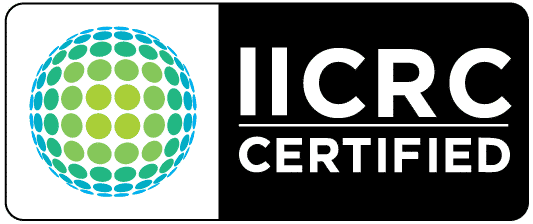Basement Water Cleanup
Basement Water Cleanup
Dealing with a flooded basement can be overwhelming, but with the right information and approach, you can effectively clean up and prevent future issues.
Steps for Post-Flood Basement Clean-Up
Cleaning up a basement after a flood can be a daunting task, but by following a systematic approach, you can ensure that you take all the necessary actions. Here are the steps to post-flood basement clean-up:

The Three Types of Floods
Understanding the different types of floods is a common practice in hydrology and can be beneficial for individuals and communities in preparing for potential flooding events. There are three main types of floods:
Understanding these types of floods is crucial for effective basement water cleanup after a flood event. Each type presents unique challenges that require specific strategies for water removal and restoration. Failing to address basement flooding promptly can lead to structural damage, mold growth on basement walls, and health hazards from stagnant floodwater. It is important to wear appropriate personal protective equipment such as rubber boots and gloves during basement water cleanup to ensure safety while dealing with potentially hazardous floodwater.
Being aware of these three types of floods allows individuals to take proactive measures in mitigating the risks associated with flooding events and effectively addressing the aftermath through proper basement water cleanup procedures.
Causes of a Flooded Basement
Basements can flood for various reasons, including heavy rainfall, poor drainage systems, or cracks in the foundation. When these issues occur, water can seep into the basement, causing damage and the need for cleanup. It is important to understand the causes of a flooded basement so that you can take effective measures to prevent it and restore your space.
Here is an overview of common causes of a flooded basement:
When dealing with a flooded basement, it is crucial to begin the cleanup process promptly. Start by removing standing water using wet-dry vacuums or pumping equipment. Once most of the water is gone, focus on drying out any remaining moisture from walls, floors, and furniture. Specialized drying techniques may be needed for concrete floors. Additionally, addressing the underlying issues that caused the flooding is essential to prevent future incidents.
Depending on the extent of the damage and your insurance coverage, you may need to file an insurance claim to help cover the costs of basement water cleanup and restoration. Financial assistance can make the repair process more manageable.
Who Do You Call to Clean Up a Flooded Basement
When your basement floods, it is important to call in professionals to handle the cleanup. Water damage can be extensive, causing harm to your property’s structure and belongings. Hiring experts who have the knowledge and equipment to effectively address the issue is crucial.
Here are some key reasons why you should consider professional help:
Relying on skilled professionals ensures an effective cleanup process that prioritizes safety and minimizes potential long-term consequences associated with basement flooding incidents.
DIY Vs. Hiring a Professional for Flooded Basement Cleanup
Assessing whether to tackle a flooded basement yourself or hire a professional requires considering factors like expertise, equipment availability, and safety concerns.
While DIY basement water cleanup may seem cost-effective, it is crucial to think about the complexity of the task.
Professionals have specialized knowledge and experience in handling flooded basements. They have advanced tools and techniques for efficient restoration. A professional restoration company can offer comprehensive services, including structural drying, mold remediation, and deodorization.
On the other hand, DIY methods often lack the necessary expertise and equipment for proper basement flood cleanup. This can lead to incomplete water extraction or insufficient drying, resulting in more damage or potential health risks from mold growth.
Moreover, safety is a significant concern when deciding between DIY and hiring a professional. Dealing with standing water can be dangerous without proper training and protective gear. Professionals are skilled in handling hazardous materials and have safety precautions in place for both themselves and homeowners.
While DIY may seem cost-effective initially, it can result in costly repairs later if not done correctly. Hiring a professional ensures thorough basement flooding repair while minimizing further damage or future expenses associated with inadequate cleanup efforts.
Considering expertise, equipment availability, safety concerns, and potential long-term costs, hiring a professional restoration company is preferable over DIY methods for flooded basement cleanup.
How to Find a Reputable Professional Water Cleanup Company
When you’re looking for a reliable water cleanup company to handle flooded areas, there are a few important factors to consider. These factors will help you determine if the company has the necessary expertise and experience to effectively clean up the water damage. Here are five key things to think about:
- 1Industry certifications: Look for companies that have certifications from recognized organizations in the water damage restoration industry. Certifications like IICRC (Institute of Inspection Cleaning and Restoration Certification) show that the company meets industry standards.
- 2Customer reviews: Take the time to read customer reviews and testimonials to get a sense of the quality of service provided by the company. Positive feedback from previous customers can give you confidence in their ability to handle your specific needs.
- 3Track record: Consider how long the company has been in business and how successful they have been in handling similar projects. A well-established company with a proven track record is more likely to deliver satisfactory results.
- 4Range of services: Make sure the company offers a comprehensive range of water damage services, including cleanup, drying, dehumidification, mold remediation, and restoration. It is important to have all aspects of the cleanup process covered.
- 5Insurance coverage: Verify that the company has adequate liability insurance coverage for any potential damage or accidents that may occur during the cleanup process. This will help protect you and the company in case anything goes wrong.
Why You Should Trust ARC Restoration
ARC Restoration is a trusted company with industry certifications, positive customer reviews, a proven track record, a wide range of services, and adequate insurance coverage.
When it comes to basement water cleanup, trust is crucial in choosing the right company. ARC Restoration has built a strong reputation for delivering high-quality services in this area.
Basement flooding caused by water leaks can lead to significant water damage if not addressed promptly and effectively. ARC Restoration understands the urgency of such situations and has the expertise to handle them efficiently. Our team of professionals is trained in using specialized equipment, like water extraction vacuums, to ensure thorough drying and restoration of basements.
Homeowners insurance often covers basement flooding caused by events like burst pipes or heavy rainstorms. ARC Restoration works closely with insurance companies to streamline the claims process for our clients. We have experience dealing with insurers and can provide valuable assistance in documenting damages and submitting necessary paperwork.
Furthermore, ARC Restoration prioritizes safety during water emergencies. Our knowledgeable technicians understand electrical wiring systems and take appropriate measures to mitigate any potential hazards associated with water damage.
Cost of Flooded Basement Cleanup
Dealing with a flooded basement can be a costly endeavor, so it is important to consider the cost of cleanup. The total expense will depend on several factors, including the extent of the water damage, the source of the water, and how high it has risen. Accurately assessing these factors is crucial for determining the necessary steps for cleanup and estimating the associated costs.
Here are key points to keep in mind when it comes to the cost of flooded basement cleanup:
How Do I Get Rid of Odors?
Getting rid of odors after a flooding incident requires a thorough cleaning and proper ventilation to eliminate any lingering smells. When dealing with basement water cleanup, it is important to identify the source of the odor and address it accordingly.
One common cause is a faulty sump pump, which can lead to water accumulation in the basement. Fixing or replacing the sump pump will prevent further flooding damage and help eliminate odors.
To effectively clean up after basement water damage, start by removing any standing water using wet vacuums or pumps. Make sure to thoroughly clean and sanitize all affected surfaces using appropriate cleaning solutions. Pay close attention to areas around appliances like the water heater or pool pump, as they can contribute to odor formation if not properly cleaned.
Proper ventilation is crucial in eliminating odors caused by mildew growth. Open windows and use fans to circulate fresh air throughout the space. Additionally, consider using dehumidifiers to reduce moisture levels in the basement, as excessive moisture promotes mildew growth and contributes to unpleasant smells.
It is worth noting that insurance coverage for flooding varies depending on the type of water damage and individual policies. Consult your insurance provider to determine what is covered under your policy and seek professional assistance if needed for extensive cleanup or restoration efforts.
5 Things to Do to Prevent Basement Flooding
Preventing basement flooding is essential to protect your home from water damage. There are several actions you can take as a homeowner to minimize the risk of water seeping into your basement:
- 1Regularly inspect and maintain your gutters and downspouts to ensure proper drainage. Clogged gutters can cause water to overflow and potentially enter your basement.
- 2Install a sump pump with a backup power source. This device will remove excess moisture by pumping out any accumulated water, preventing further damage.
- 3Make sure the ground around your home’s foundation is properly graded. The slope should direct water away from the basement walls, helping to prevent water from entering.
- 4Seal any cracks or gaps in the foundation walls with waterproofing materials. This will prevent clean water from entering through these openings.
- 5Improve air circulation within the basement by using fans or dehumidifiers. Proper ventilation reduces excess moisture in the air and discourages mold growth.
By following these preventative measures, you can significantly reduce the risk of basement flooding and avoid expensive repairs or cleanup in the future.
It is important to note that while these actions help mitigate risks, they do not guarantee complete protection against all sources or amounts of water pressure that may infiltrate your basement.


